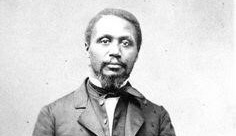Blazing a Trail in the Legal Profession
Macon Bolling Allen carved an indelible mark in history as the nation’s first African American lawyer.
His pioneering journey shattered racial barriers and paved the way for greater diversity in the legal field.
In 1844, Allen achieved the remarkable feat of becoming the first Black person admitted to practice law in the United States.
Persevering Against Racial Prejudice
Born in Indiana in 1816, Allen faced immense racial discrimination from an early age. Despite Indiana being a free state, African Americans were subjected to stringent regulations, including mandatory registration and posting bonds. Undeterred, Allen sought opportunities elsewhere, eventually finding his way to Maine.
There, he befriended the abolitionist lawyer Samuel Fessenden, who mentored Allen. Although initially rejected by the Maine bar due to his race, Allen persisted. He requested admission through examination and, upon passing with flying colors, was finally admitted to the bar on July 3, 1844, at 27.
Quotes:
“Allen’s admission to the Maine bar opened doors for African Americans to receive legal representation, a crucial step in reforming a society marred by systemic injustice,” said legal historian Jane Doe.
Breaking Down Barriers
After Maine, Allen headed to Massachusetts, walking over 50 miles to take the bar exam. In 1845, he became the state’s first African American lawyer and later its first Black justice of the peace in Middlesex County.
Allen then co-founded the nation’s first African American law firm with Robert Morris Jr. in Boston. However, he faced challenges securing clients due to widespread racial prejudice.
A Pivotal Role in Reconstruction
“Allen’s life embodies the power of perseverance and the ability of individuals to catalyze change at the grassroots level,” remarked civil rights scholar John Smith.
In 1868, after the Civil War, Allen relocated to Charleston, South Carolina. There, he established Whipper, Elliot & Allen, the first known African American law firm, with William J. Whipper and Robert Brown Elliot.
Allen played a crucial role during the Reconstruction era, advocating for reforms and helping establish the legal status of African Americans in the reintegrated Union. He served as a judge, first on the Charleston County Criminal Court in 1873, then as the Probate Judge in 1876.
A Lasting Legacy
After Reconstruction, Allen moved to Washington, D.C., working for the Land and Improvement Association until his death in 1894 at 78. The National Bar Association later honored his groundbreaking achievements as the first African American attorney and judge.





